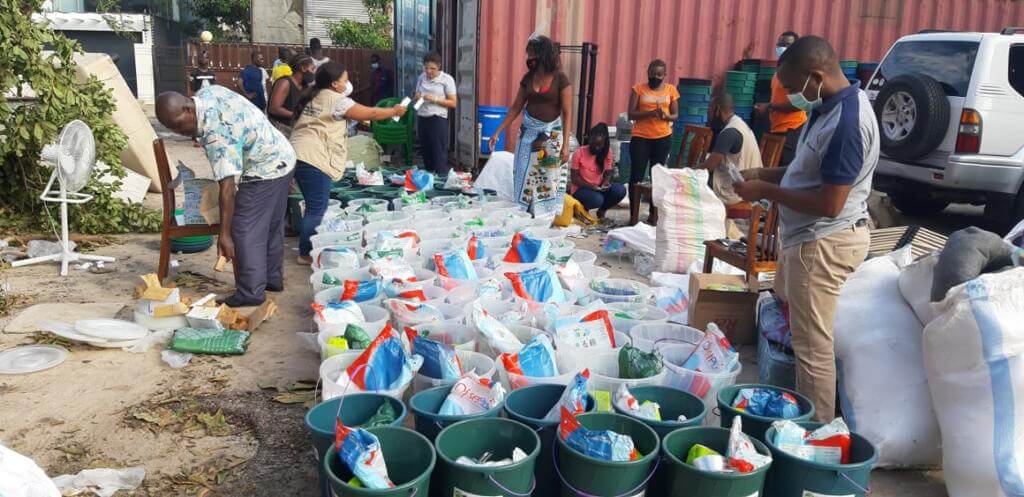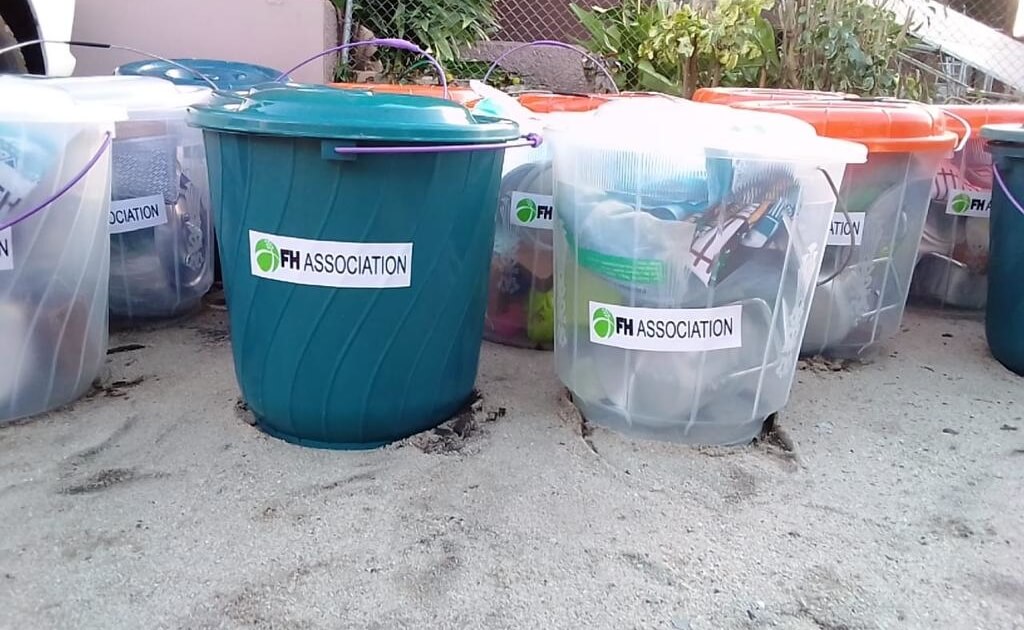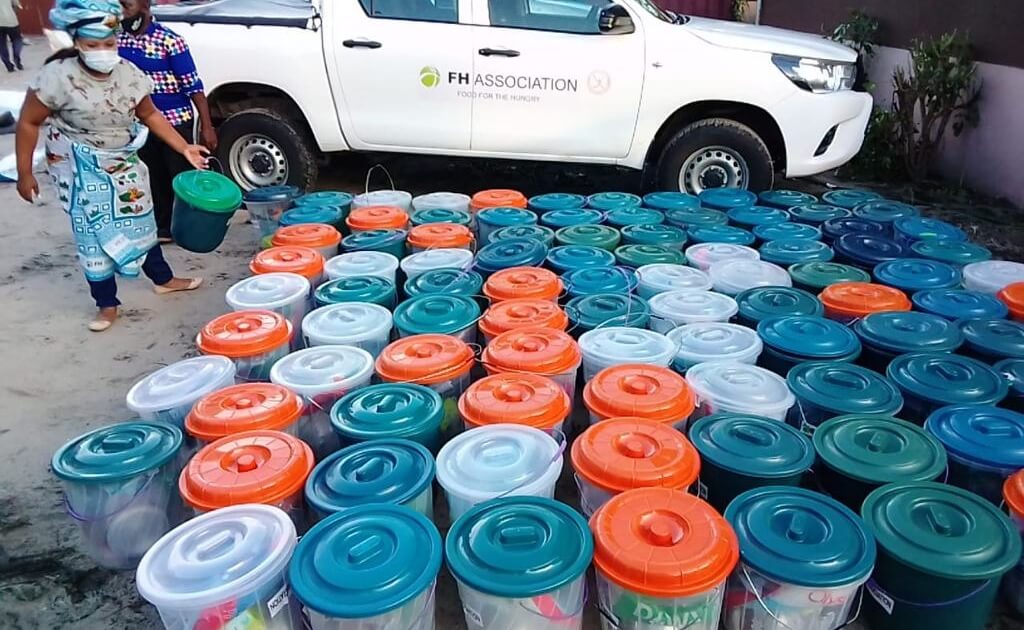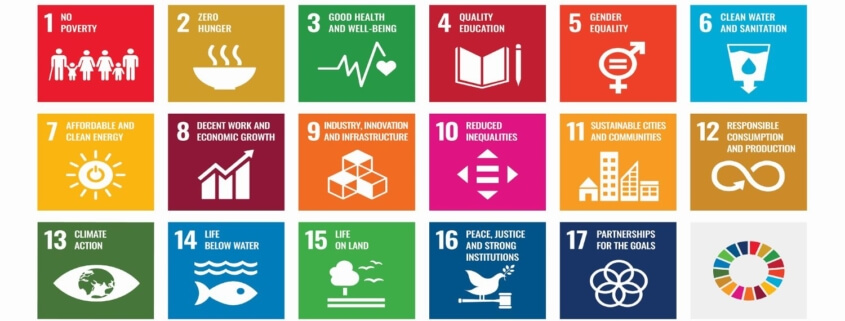Food for the Hungry and The Sustainable Development Goals
In 2015, the United Nations developed 17 Sustainable Development Goals (SDGs) as a “shared blueprint for peace and prosperity for people and the planet, now and into the future” to be achieve by 2030. The SDGs were preceded by the eight Millennium Development Goals, which directed the world’s governments and development institutions toward equality in meeting the world’s needs. Global Volunteers is committed to the vision and volition of the SDGs, and the MDGs before them, and measure our outcomes accordingly. In this blog series, we share the work of companion organizations toward achieving the SDGs. In this post, Chief Operating Officer Rudo Kayombo of Food for the Hungry (FH) explains their Christian vision to end all forms of human poverty worldwide.
First, can we ask how FH interprets the importance of the SDGs?
The UN SDGs are a written expression of the shared commitment by world leaders, individuals, and institutions to work collectively to foster human development that will last. Implicit in the wording of the SDGs is the commitment to invest toward sustainable solutions that are achieved through an inclusive way of working.

We subscribe to both the spirit of the goals and makes specific contributions to many of the goals. FH’s commitment to eradicating holistic forms of poverty has been part of its mission over the past 50 years. The advent of the MDGs and later SDGs have been a great complement to this mission, serving both as an organizing framework and confirmation of its mission. Specifically, FH directly responds to the following SDGs:
#1 No Povery. FH exists to see human poverty ended worldwide, and all its programs and efforts serve this end. Focusing on health and nutrition, water, sanitation and hygiene (WASH), food security and livelihoods, education, and disaster risk reduction, we believe in a holistic approach to address poverty, honoring the people we serve by inviting them to contribute to the process.
#2 Zero Hunger. We stimulate sustainable food production through the application of environmental protection and other low-cost innovative production techniques, increase income, and improve availability, access and utilization of diverse nutritious food for children and their families, while increasing community capacities to mitigate and recover from external shocks.
#3 Good Health and Well-Being. FH’s health and nutrition approach includes five objectives:
- Households and communities provide optimal care of mothers and children.
- Health of adolescents is improved; especially nutrition, reproductive health, and mental health.
- Ensure availability and sustainable management of water and sanitation for all.
- Mental health is improved: especially in the areas of depression, substance abuse, and Early Childhood Education (ECD).
- Achieve gender equality/equity.
#4 Quality Education. Our education approach targets households, schools and community actors who reach children 0-9 years of age and aims to increase school readiness by grade 1, as well as literacy and numeracy appropriate for students’ ages.
#5 Gender Equality. Mindful of the impact of gender inequality on the livelihoods of communities it serves, FH has made gender integration the cornerstone of all its programs. Gender integration includes strategies applied in program assessment, design, implementation, and evaluation to take gender norms into account and to compensate for gender-based inequalities. Some areas of focus include schooling of girls, early marriages, women social and economic empowerment, control of gender-based violence, distribution of tasks and responsibilities in to reduce burden on women’s time, etc.
#6 Clean Water and Sanitation. By leveraging local expertise and strong partnerships, FH has been able to achieve lasting gains including social and behavioral change promoting hygiene, community-led initiatives, water, sanitation and hygiene (WASH) systems and capacity building.
#8 Decent Work and Economic Growth. Since access to resources such as land is still very limited for women in many communities we operate economic development programs, including savings groups and income-generating activities, designed to target more women, including youth.
#10 Reduced Inequalities. This is part of our assessment and planning process – putting programming in place that not only helps eradicate the inequalities, but also changes the root belief systems that caused them. In Kenya, FH works to bring women into livestock market systems (the highest-value systems in the area); in Bangladesh, we help women’s savings groups access literacy and numeracy training that propelled them to more successful small businesses and participation in local government.
#11 Sustainable Cities and Communities. Responding to the global trends of rapid urbanization and growing slum-dweller populations in the Philippines and Peru, FH has worked to promote child protection and strengthen leadership groups’ ability to promote a cohesive sense of community and trust amongst their neighbors.
#13 Climate Action. In its food security program, FH promotes climate smart agriculture practices. And example is agro-ecology techniques, which protect the productive capital of the farming household, while sustainably increasing crop production. FH also promotes reforestation and natural regeneration to reduce environmental degradation.
#15 Life on Land. Recognizing how environmental degradation exacerbates poverty, FH promotes environmentally sustainable practices to improve community resilience. For example, in Ethiopia, we implement a large watershed conservation program which improves soil and water conservation. It also increases the community’s ability to sustainably manage these practices in an area of rampant drought and food insecurity. The success of these programs has led to watersheds being recovered to such an extent that the water tables rise again, and vegetation begins to flourish.
#17 Partnership for the Goals. FH seeks true partnerships with local communities, municipalities and national governments, international organizations, other civil society organizations and donors to accomplish these goals. Sometimes taking the role of convener, sometimes as participant, sometimes recipient, sometimes donor, FH recognizes the inter-dependency needed with these other partners to achieve the goals.

How do you describe your SDG outcomes?
FH seeks to graduate communities from poverty and respond to human suffering. Therefore we measure progress against multidimensional poverty – which includes key performance indicators measuring hunger, malnutrition, education, gender equality, and livelihoods. These outcomes are measured every two years. We partner with other NGOs on different consortia, working groups, funding opportunities and implementation realities to accomplish these outcomes.

How important are the SDGs as a motivational or organizational tool for international cooperation on the global challenges we face, including poverty, inequality, climate change, environmental degradation, peace and justice?
Built into the SDGs is the power to galvanize common action to work toward sustainable solutions to challenges confronting the world. The goals provide a universal framework that has fomented cooperation across sectors and geographies. It is the spirit of common action using common language and shared tools to measure what we all do and the progress we are making that has created shared ownership of the goals.
What motivates you, personally, in your work to achieve your organization’s goals to improve the world?
My faith in Jesus and my commitment to follow His example and teaching has motivated me to join the FH family. Together we do all we can to reduce human suffering and injustice. As an organization, we invite supporters and partners to participate in this effort, and in inviting others to partner with us, we consistently share our organization’s motivation and identity. Our partnership offers us the privilege to work together towards the greater good of humankind with a special focus on those most impacted by material poverty, broken relationships and the negative impact of climate change and unjust systems and structures.
Global Volunteers respects and supports Food for the Hungry’s work to bring the benefit of the SDGs to struggling communities around the world. We share their vision to help achieve well-being for all without compromising the potential of future generations to meet their needs. We invite opportunities for NGO partnerships in these areas. Read on to learn how Global Volunteers’ impacts address the United Nations SDGs and how our Reaching Children’s Potential Program is helping to end stunting in Tanzanian villages.




Leave a Reply
Want to join the discussion?Feel free to contribute!